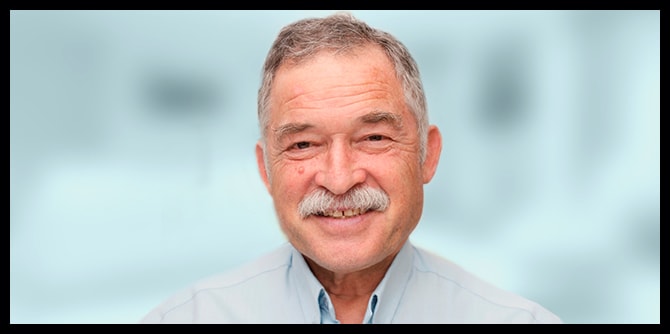
Born in Israel in 1949, Shimon Adler was a graduate of the Merkaz Harav yeshiva in Jerusalem, and held a master’s degree in Holocaust history. Shimon was the principal of the Bnei Akiva girls’ school in Even Shmuel, was a Ministry of Education supervisor for the state-religious education system, and he directed the Religious Education Administration of the Ministry of Education for nine years.
Shimon was a graduate of the first cohort of the Mandel School for Educational Leadership. During his studies, he developed a model that would enable schools to enhance their students’ strengths. After the program, he implemented this model at the AMIT Hevruta yeshiva high school in Kfar Batya, which he founded and led for nine years.
In recent years, after completing his service as head of the Education Ministry's Religious Education Administration, Shimon went back to working as a homeroom teacher, at the Himmelfarb high school in Jerusalem, as an expression of his moral philosophy, which placed education and interaction with students at the forefront. In his work as a faculty member at the Mandel School, he also saw interaction with fellows as his main task, one in which he invested himself fully.
Shimon laid out his educational approach in a booklet he produced at the end of his studies at the Mandel School for Educational Leadership. He based his ideas on the teachings of the Talmudic figure Rava, which see wisdom as leading to action, and action as the purpose of acquiring wisdom. Inspired by this approach, Shimon asserted that learning has the power to alter student behavior, and saw this as the main source of inspiration for religious educators.
Shimon was mainly concerned with students who have difficulty maintaining the level of application necessary for yeshiva study, with its ideal of total immersion in Torah study, and who do not receive appropriate educational attention, which can negatively affect their behavior. “It is to these students that I have dedicated my years of study at the Mandel School for Educational Leadership,” Shimon wrote. “I have tried to find a way in which study can influence and mold young people, in the spirit of Rava, which differs from current approaches.”
Shimon always sought creative solutions that would be inclusive of all, and always found the good in everyone. This was what defined him most, as all who had the privilege of knowing him – faculty and fellows alike – can attest.
At Shimon’s funeral, Danny Bar Giora, the director of the Mandel School for Educational Leadership, gave the following eulogy:
Dear, beloved Shimon,
Since the phone call early this morning that informed me of your passing and of your request that I speak here, I have been going around in circles, standing mute before an empty page, and the only word I have written, again and again, is “thank you.”
Thank you, dear Shimon. Thank you for true friendship, thank you for the endless hours of intimate conversation, for the endless hours of conversations about education, conversations about life. Thank you for seeing me, for being a partner – the best one could possibly ask for – in leading this important place, the Mandel School for Educational Leadership, where we both had the privilege of being fellows.
I was blessed, Shimon. For the last six years, I had the privilege of spending time with you every morning. It is such a great privilege to find such a close friendship in the middle of one’s life [….]
We spoke more than once, and more than a little, about the importance of education for values, especially here at Mandel, about how important it is to speak with our fellows about questions of ego and the use of power, and how important it is to place this matter at the center of the curriculum. I argued that the way for us to do this was through personal example, and I know, Shimon, that your very presence, your personal example, had more impact on many fellows than any scholarly lesson on this subject ever could.
And now, you are leaving us with a great void. Your concern, Shimon, for the fellows in our program who do not hail from the mainstream of Israeli society – Arab fellows, Haredi fellows, fellows from the periphery – is a prime example of who you were: consistent in word and deed. Your concern and your actions provided all of us with an example of acceptance others, an example of how those who belong to stronger groups have a deep moral obligation to care, to make room for those from weaker groups. Even at our last meeting, two weeks ago, you asked about the fellows you tutored, you were concerned about them; you were also concerned about me, and were thinking of ways to help.
A man of virtue, a humble and modest man, consistent in word and deed, human, fatherly, gentle, open, precise, a man of few words. His heart was not haughty, and his eyes were not lofty. These are just some of the things that were said today in the corridors of the Mandel School for Educational Leadership. And I would like to add a quote from Rabbi Baruch of Shtuchin: “A man who does not take a place anywhere, has a place everywhere.”
I stand here today, dear Shimon, mainly as a friend, as someone whose soul was bound with yours, but also as a representative of the entire Mandel Foundation. I stand here today, and with me are standing Morton Mandel, Professor Jehuda Reinharz, Moshe Vigdor, and all the Mandel employees, faculty members, fellows, and graduates.
Rest in peace, dear Shimon.
